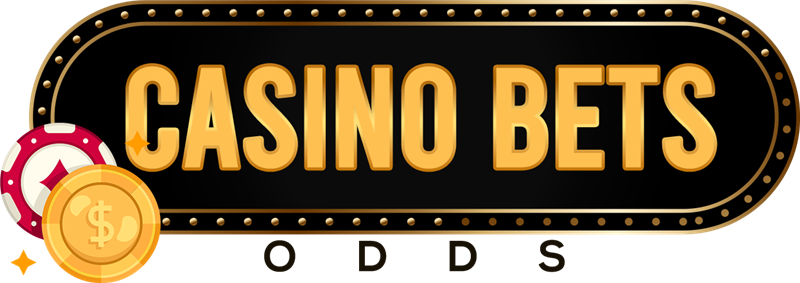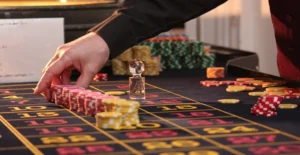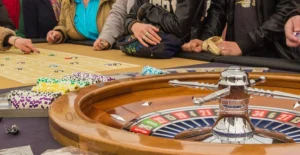Ever wondered how long you’ll be at the poker table? It’s a common question, and the answer depends on what kind of game you’re playing. From quick hands to multi-day tournaments, the time commitment can change a lot. Knowing how long a game of poker takes before you sit down can save you from a lot of surprises. Let’s break down the different types of poker games and what kind of time you should expect to spend on each.
Key Takeaways
- The length of a poker game can be anywhere from a few minutes to several days, depending on the game type.
- Cash games let you join and leave whenever you want, offering more flexibility.
- Online tournaments can last a few hours, while major live tournaments might go on for days.
- A single poker hand usually takes just a few minutes to play out.
- Your personal comfort and concentration level should guide how long you play, not what others do.
How Long Does a Poker Game Take?
So, how long does a poker game take? Well, it’s a bit like asking how long a piece of string is. The duration can swing wildly, from a quick few minutes to sessions that stretch over days. There are a bunch of things that affect the clock, but let’s break it down.
Think of it this way: a casual home game with friends is going to be way different than grinding it out at a major tournament. Knowing what you’re getting into beforehand is key.
To give you a better idea, here’s a quick rundown:
- Cash Games: These are the most flexible. You can jump in and out whenever you want. Cash games are great if you only have a limited amount of time.
- Tournaments: These can vary a lot. A quick online tourney might take 4-6 hours, while a big live event could last for days.
- Sit & Go’s: These are usually shorter than full tournaments, often wrapping up in an hour or two.
Factors Affecting Poker Game Duration
So, you wanna know how long you’ll be stuck at the table? Well, it’s not a simple answer. Several things can impact how long a poker game lasts. Let’s break down the main factors.
The type of game, the players involved, and even the specific rules in place can all dramatically change the length of a poker session. Understanding these elements helps you plan your time and manage your expectations.
Game Type
The kind of poker you’re playing is a huge factor. A quick round of Texas Hold’em is way different than a long, drawn-out Seven-Card Stud game. Tournaments, cash games, and Sit & Gos all have their own typical timeframes. For example, multi-table tournaments can last for hours, even days, while a cash game lets you leave whenever you want.
Number of Players
More players usually mean a longer game. Think about it: more people, more hands, more decisions. In a tournament, the field gradually shrinks as players get knocked out, but at the start, it can be a grind. In cash games, the number of players at your table can fluctuate, affecting the pace. A full ring game (9-10 players) will generally take longer than a short-handed game (6 players or fewer).
Skill Level of Players
The skill level of the players at the table can significantly impact the game’s duration. If you’re playing with a bunch of tight, experienced players, you might see fewer big pots and more cautious play, extending the session. On the other hand, if some loose cannons love to gamble, the game could be over quickly with wild swings and fast action.
Structure of the Game
The structure refers to things like blind levels (in tournaments), betting limits (in limit games), and the speed at which the game is played. Turbo tournaments, for instance, have very short blind levels, forcing players to act quickly and leading to faster eliminations. A slow-structured tournament with longer levels will naturally take much longer. Similarly, a cash game with high blinds will play faster than one with low blinds.
Payout Structure
In tournaments, the payout structure can influence how players behave, especially as you get closer to the bubble (the point where the next player eliminated gets nothing). If the payouts are top-heavy (meaning most of the money goes to the top few places), players might play more cautiously, trying to sneak into the money. A flatter payout structure, where more players get a decent payout, might encourage more aggressive play.
Player Decisions and Tanking
This is a big one. Some players take forever to make a decision, even in simple spots. This “tanking” can really slow down the game, especially if multiple players are doing it. While a little bit of thought is understandable, excessive tanking is generally frowned upon and can make a game drag on and on. It’s more common in live games, but it can happen online too.
Breaks and Downtime
Don’t forget to factor in breaks. Live tournaments usually have scheduled breaks every couple of hours, and even online games might have short pauses. Also, in live games, there’s often downtime for shuffling cards, dealing, and other administrative tasks. These little delays can add up for a long session.
To summarize, here’s a quick rundown:
- Game type (tournament, cash game, Sit & Go)
- Number of players
- Skill level of players
- Game structure (blind levels, betting limits)
- Payout structure (for tournaments)
- Player decision-making speed
- Breaks and downtime
Keep these factors in mind when you’re planning your next poker session, and you’ll have a better idea of how long you’ll be playing. Understanding game theory can also help you make quicker, more informed decisions, speeding up the game.
How Long Does a Poker Session Last? Beginner vs. Pro
So, you’re wondering how long you should actually be sitting at the poker table? Well, it’s not a one-size-fits-all answer. A newbie’s session is going to look a lot different than a seasoned pro’s. Let’s break it down.
Beginner Session Length
When you’re just starting, your brain is working overtime. You’re trying to remember hand rankings, figure out betting patterns, and avoid making obvious mistakes. It’s exhausting! For beginners, keeping sessions short is key.
- Focus: Beginners often struggle with maintaining focus over long periods.
- Learning Curve: Shorter sessions allow time to process and learn from mistakes.
- Bankroll Management: Shorter sessions can help prevent significant losses due to inexperience.
Think of it like this: you wouldn’t run a marathon without training, right? Poker is the same. Start with shorter sprints and gradually build up your endurance.
Pro Session Length
Pros are a different breed. They’ve put in the hours, honed their skills, and developed the mental stamina to grind for extended periods. They can handle longer sessions, but that doesn’t mean they always should.
- Experience: Pros have the experience to manage their energy and focus over longer periods.
- Profit Maximization: Longer sessions can allow pros to capitalize on favorable conditions and maximize profits.
- Adaptability: Pros can adjust their strategy and game selection based on the flow of the game.
Factors That Influence Session Length
Regardless of your skill level, several factors can influence how long you should play. These include:
- Your Physical and Mental State: Are you tired, stressed, or distracted? If so, it’s probably best to cut your session short.
- The Game Conditions: Is the game profitable? Are there a lot of weak players? If the game is good, you might want to play longer. If not, it’s okay to quit.
- Your Bankroll: Don’t risk too much of your bankroll in a single session. Set a stop-loss limit and stick to it.
Average Length of Live Cash Game Sessions

So, you’re wondering how long you’ll be parked at the poker table in a live cash game? It’s a pretty open-ended question, honestly. Unlike tournaments with set end times, cash games are flexible. You can get up and leave whenever you want, which is both a blessing and a curse.
Most players will typically play a live cash game session for around 3 to 6 hours. But that’s just an average. Some folks might only stick around for a quick two-hour session, while others are ready for an all-night grind that stretches to 8 hours or more. It depends on a bunch of things, like how well they’re doing, how tired they are, and what else they have going on.
Here are a few things to keep in mind:
- Profit/Loss: A winning streak can keep you glued to your seat, while a losing streak might send you packing early.
- Energy Levels: Live poker can be mentally draining. If you’re feeling tired or distracted, it’s probably time to call it quits.
- Game Dynamics: A juicy game with lots of action will be more enticing to stay in than a tight, boring one.
It’s important to set a stop-loss and a win goal before you even sit down. This helps you avoid chasing losses or getting too greedy. Sticking to these limits can help you manage your time and bankroll effectively.
Remember, live poker cash games offer freedom, but also require discipline. Plan your session, listen to your body, and don’t be afraid to walk away when it’s time.
Typical Duration of Online Cash Game Sessions
Online cash games offer a different experience compared to live poker. You can jump in and out of games much more easily, and the pace is generally faster. So, how long should you expect to spend in an online cash game session?
The beauty of online cash games is their flexibility; you can play for as little or as long as you want. Unlike tournaments with fixed end times, cash games let you control your session length. However, several factors influence how long people typically play.
Factors Influencing Session Length
- Your Goals: Are you trying to grind out a profit, clear a bonus, or just have some fun? Your objective will dictate how long you play. If you’re aiming for a specific profit target, you might play until you reach it, regardless of the time. If you’re just looking to unwind, you might set a time limit.
- Your Bankroll: Playing within your means is crucial. If you’re playing with a small bankroll, you might be more inclined to play shorter sessions to minimize risk. Conversely, if you have a larger bankroll, you might be comfortable playing longer sessions.
- The Games Themselves: Some games are faster-paced than others. For example, fast-fold poker variants will naturally lead to shorter sessions because you play more hands per hour. Slower, more strategic games might encourage longer sessions.
- Your Opponents: If you find yourself in a game with weak opponents, you might want to extend your session to exploit their mistakes. On the other hand, if the game is tough, you might cut your losses and leave earlier.
Average Session Length
While there’s no hard and fast rule, here’s a general idea of what to expect:
- Beginners: New players often play shorter sessions, typically 1-2 hours. This allows them to get comfortable with the online environment and learn the ropes without risking too much money or getting overwhelmed.
- Recreational Players: Most recreational players will play for 2-4 hours at a time. This is enough time to enjoy the game, potentially make a profit, and fit poker into their busy schedules.
- Serious Players/Semi-Pros: Players who are serious about poker and looking to make a consistent profit might play longer sessions, often 4-8 hours or more. They’re more likely to multi-table (play multiple games simultaneously) to increase their hourly rate.
It’s important to listen to your body and mind. If you’re feeling tired, tilted, or distracted, it’s best to take a break or end your session. Playing when you’re not at your best can lead to poor decisions and costly mistakes.
Tools and Features
Many online poker sites offer features to help you manage your session length. These might include:
- Session Timers: Set a timer to remind you when it’s time to take a break or end your session.
- Profit/Loss Limits: Set a limit on how much you’re willing to win or lose in a session. Once you reach that limit, the software will automatically close your tables.
- Hand History Tracking: Review your hand histories to identify leaks in your game and track your progress over time. This can help you make informed decisions about your session length and strategy.
How Long Does a Single Poker Hand Last?
Okay, so you’re wondering how long one single hand of poker takes? It’s a good question, and the answer can vary quite a bit. Unlike a whole game or tournament, we’re talking minutes here, not hours. But even those minutes can feel like an eternity when you’re staring down a big bluff or waiting for that river card.
The average poker hand usually wraps up in just a few minutes.
Think about it: cards are dealt, bets are made, maybe some raises, and then the showdown. Quick, right? But a lot of things can change that average.
The speed of a hand depends on the players involved. Some people are quick to act, while others take ages before making a decision. This is especially true in live games, where you don’t have a timer pushing you along.
Here are a few things that can affect how long a hand drags on:
- Number of Players: More players mean more decisions, which naturally extends the hand.
- Betting Action: Lots of raising and re-raising will make the hand longer.
- Player Hesitation: Slow players who take a long time to decide will slow everything down.
So, while a hand can be over in a flash, don’t be surprised if some hands take a bit longer, especially if there’s a lot of money on the line. Understanding basic rules is key to keeping the game flowing.
Sit and Go Tournament Time: What to Expect

Sit and Go (SNG) tournaments are a popular choice for poker players looking for a quicker game format. Unlike multi-table tournaments (MTTs) that can last for many hours, SNGs have a defined start and end, making them easier to fit into a busy schedule. But how long do they take?
Generally, a standard Sit and Go will last between 30 minutes and an hour. However, several factors can influence the duration.
- Number of Players: A 6-max SNG will naturally finish faster than a 9-max SNG because there are fewer players to eliminate.
- Blind Structure: The speed at which the blinds increase significantly impacts the game’s length. Faster blind increases mean quicker eliminations and a shorter tournament.
- Player Skill Level: If the players are generally tight and risk-averse, the game might drag on. More aggressive players tend to speed things up.
I remember one SNG I played where everyone was super cautious. It felt like it took forever to get down to the final few players. On the other hand, I’ve been in some crazy SNGs where people were all-in every other hand, and the whole thing was over in like 20 minutes!
The key is to understand the structure of the SNG before you start. This will give you a good idea of the time commitment involved. For example, the upcoming WSOP tournament features short level times, indicating a fast-paced event.
Here’s a rough estimate of SNG durations based on the number of players:
| Number of Players | Average Duration |
| 6-max | 30-45 minutes |
| 9-max | 45-60 minutes |
| 18-max | 60-90 minutes |
Standard Daily Tournament Lengths
Daily poker tournaments are a staple in casinos and online poker rooms. They offer a structured format with a defined start and end time, unlike cash games. But how long can you expect to be grinding in one of these? Let’s break it down.
The duration of a daily tournament can vary quite a bit, typically ranging from 2 to 6 hours. This depends on several factors, including the number of players, the tournament structure (speed of blind increases), and the starting chip stack. A larger field naturally takes longer to play through, as does a slower structure where blinds increase less frequently.
It’s always a good idea to check the tournament details before you register. Look for information on the blind levels, starting stack, and estimated duration. This will help you plan your time accordingly and avoid any surprises.
Here’s a general idea of what to expect:
- Smaller Tournaments (less than 50 players): 2-4 hours
- Mid-Sized Tournaments (50-150 players): 4-6 hours
- Larger Tournaments (150+ players): 6+ hours
Keep in mind that these are just estimates. Variance is a big part of poker, and a tournament can end sooner or later than expected due to luck and player decisions. Also, consider the specific type of tournament. For example, a Face Up Pai Gow Poker tournament might have a slightly different structure than a standard No-Limit Hold’em event, affecting its length.
How Long Do Major Multi-Table Tournaments Run?
Major multi-table tournaments (MTTs) are a different beast altogether compared to your average daily or online game. These events are marathons, not sprints, and require a significant time commitment.
Think of the World Series of Poker (WSOP). The Main Event, for example, stretches over several days, with players grinding for 10-12 hours each day. You really need to consider the time commitment before jumping into these events. It’s not something you can just casually drop out of if you get bored or have other plans.
Planning for a major tournament means clearing your schedule and preparing for a test of endurance, both mentally and physically. It’s about more than just playing good poker; it’s about managing your energy and focus over an extended period.
Here’s a rough idea of what to expect:
- Smaller Major Tournaments: These might run for 2-3 days.
- Mid-Range Major Tournaments: Expect 3-5 days.
- WSOP Main Event: This is the big one, typically lasting around 9 days.
So, if you’re eyeing a big tournament, make sure you’ve got the time and stamina to go the distance. Also, remember that the tournament length can vary based on the number of entrants and the specific structure of the event. Some tournaments have faster levels, while others are designed to play out over a longer period.
Turbo & Fast Fold Sit and Go Formats: Quick Play
So, you’re short on time but still want that poker thrill? Turbo and fast-fold Sit and Gos (SNGs) might be just what you need. These formats are designed for speed, cutting down the typical SNG duration significantly. Let’s break down what makes them tick.
Turbo SNGs: Speeding Things Up
Turbo SNGs are all about faster blind levels. Instead of the usual 10-15 minute levels, you’ll often find them at 3-5 minutes. This means the action heats up quickly, and you need to be ready to make decisions fast. The accelerated pace forces players to gamble more, leading to quicker eliminations and a shorter overall game time.
Here’s a quick comparison:
| Feature | Regular SNG | Turbo SNG |
| Blind Levels | 10-15 mins | 3-5 mins |
| Starting Stack | Standard | Standard |
| Average Duration | 1-2 hours | 30-60 mins |
Fast Fold SNGs: Next Hand, Now!
Fast fold poker, like Zoom or Rush, takes the speed concept even further. The moment you fold, you’re whisked away to a new table with a new hand. You don’t have to wait for the current hand to finish. This format is available in both cash games and SNG formats. It’s great if you want to play a lot of hands in a short amount of time. If you’re looking to improve your Sit and Go poker strategy, this is a great way to get a lot of hands in.
Key Differences and Considerations
- Variance: Turbo and fast-fold formats have higher variance. The faster pace means luck plays a bigger role in the short term.
- Strategy Adjustments: You’ll need to adjust your strategy. Tight play early on might not be as effective in turbos, as the blinds increase so rapidly.
- Bankroll Management: Because of the higher variance, it’s wise to have a larger bankroll relative to the buy-ins you’re playing.
Playing turbo or fast-fold SNGs can be a great way to squeeze in some poker when you’re short on time. Just remember to adjust your strategy and bankroll management to account for the increased speed and variance. It’s a different beast than regular SNGs, but it can be a lot of fun.
Is it For You?
If you enjoy fast-paced action and don’t mind a bit more variance, turbo and fast-fold SNGs are worth a try. They offer a quick poker fix without committing to a long session. Just be prepared to make quick decisions and embrace the gamble!
Home Game Timeframes: Planning a Poker Night
Okay, so you’re thinking about hosting a poker night. Awesome! But how long should you plan for? It’s a good question, and the answer really depends on a few things. Are you thinking a quick couple of hours, or an all-nighter? Let’s break it down.
First off, think about your friends. Do they have early commitments the next day? Are they the type to bail early, or are they in it for the long haul? This will help you set a reasonable expectation. Also, consider the type of game you’re playing. A casual game of cash games with low stakes will likely move faster than a high-stakes tournament.
Planning is key. Send out invites well in advance, and be clear about the start time, the type of game, and any house rules. It’s also a good idea to have some snacks and drinks on hand to keep everyone happy and focused (or at least entertained!).
Here are a few things to consider:
- Game Type: Texas Hold’em tends to be faster than, say, a Seven-Card Stud game.
- Stakes: Lower stakes usually mean less tanking and quicker decisions.
- Breaks: Schedule short breaks every couple of hours to prevent fatigue and keep the game lively.
- Player Skill: More experienced players tend to move the game along at a faster pace.
Ultimately, the goal is to have an enjoyable night. Don’t be afraid to adjust the schedule as needed to accommodate your players and keep the energy up. Remember, it’s about the experience, not just the cards!
A well-planned poker night can be a blast, but it’s important to set realistic time expectations.
Tips to Manage Poker Session Length and Fatigue
Alright, so you want to grind it out at the tables, but those long sessions can take a toll. It’s not just about the cards; it’s about staying sharp, focused, and not letting fatigue mess with your game. Here’s what I’ve learned about managing those long poker nights.
Set a Time Limit or Hand Quota
Before you even sit down, decide how long you’re going to play. Seriously. Don’t just wing it. Having a set time or a hand quota helps you avoid playing when you’re tired and making bad decisions. I like to tell myself, “Okay, I’m playing 500 hands tonight,” or “I’m stopping at 11 PM, no matter what.” This way, you have a clear endpoint in mind.
Take Regular Breaks
Get up and walk around! Staring at a screen for hours is brutal. Every hour, take a 10-15 minute break. Stretch, grab a snack, do some jumping jacks – whatever gets your blood flowing. Trust me, your brain will thank you. It’s easy to get sucked into the game, but those breaks are essential for maintaining focus.
Stay Hydrated and Eat Healthy
Junk food and sugary drinks might seem like a good idea in the moment, but they’ll lead to a crash later on. Keep water handy and snack on things like nuts, fruits, or veggies. Proper nutrition keeps your energy levels stable, which is crucial for making good decisions late in the game. I usually prep some healthy snacks before I start playing so I’m not tempted to order a pizza at 2 AM.
Avoid Alcohol and Other Substances
This should be a no-brainer, but it’s worth mentioning. Alcohol impairs your judgment and makes you more likely to make mistakes. Save the drinks for after the game. You want to be at your sharpest, not your sloppiest.
Get Enough Sleep
Don’t even think about playing poker if you’re already sleep-deprived. A well-rested brain is a winning brain. Aim for 7-8 hours of sleep each night, especially before a long session. Trying to play poker on 4 hours of sleep is just asking for trouble.
Listen to Your Body
If you’re feeling tired, frustrated, or tilted, just stop. Seriously. There’s no shame in calling it quits. Forcing yourself to play when you’re not in the right headspace is a recipe for disaster. Remember, there will always be another game.
It’s better to end a session early and preserve your bankroll and mental state than to keep playing and lose everything because you’re too tired to think straight. Poker is a marathon, not a sprint.
Optimize Your Environment
Make sure your playing area is comfortable and free from distractions. A good chair, proper lighting, and a quiet space can make a huge difference in your ability to focus. I also like to put my phone on silent and close any unnecessary tabs on my computer.
Incorporate Physical Activity
Regular exercise can improve your overall energy levels and help you stay focused during long poker sessions. Even a short workout before you start playing can make a difference. Plus, it’s just good for your health in general.
Use Music or White Noise
Some people find that listening to music or white noise helps them concentrate. Experiment with different types of sounds to see what works best for you. I like instrumental music or nature sounds.
Review Your Sessions
After each session, take some time to review your play. This can help you identify areas where you need to improve and prevent you from making the same mistakes in the future. Plus, it’s a good way to stay engaged and motivated.
Frequently Asked Questions
How long does a poker game usually last?
The time a poker game takes can change a lot. It might be over in a few minutes or go on for several days, depending on the type of game. For example, a big tournament can take much longer than a quick cash game.
What makes poker games shorter or longer?
How long a poker game lasts depends on several things. These include whether it’s a cash game or a tournament, how many players there are, how fast the game is played, and if it’s online or in person.
How long should a poker session be for beginners compared to pros?
For new players, a poker session should probably be about one to two hours to avoid getting tired or making mistakes. Experienced players can play for much longer, sometimes up to eight hours, but they often take short breaks.
Roughly, how long does one poker hand take?
A single hand of poker usually takes just a few minutes. This includes time for players to look at their cards, make bets, and for the dealer to give out all the cards.
What’s the typical length of a Sit and Go tournament?
Sit and Go tournaments are usually quicker than bigger tournaments. They can last anywhere from 30 minutes to a few hours, depending on how many players are in the game and how fast the blinds go up.
How many days do big poker tournaments usually last?
Major poker tournaments, like those in the World Series of Poker, can run for many days. Players might play for 10-12 hours each day until a winner is found.
How long should I plan for a home poker game?
Home poker games are flexible. You can decide how long you want to play, from a quick hour or two to a whole evening, depending on what everyone agrees on.
What are some tips for managing how long I play poker?
To manage your poker session length and avoid getting tired, it’s a good idea to set a time limit before you start. Also, take short breaks, stay hydrated, and don’t play if you’re already tired or distracted.
Daniel Chase is a seasoned casino analyst and iGaming writer with over 10 years of experience in the online gambling industry. He specializes in game strategy, casino odds, and player-focused reviews. Daniel is passionate about helping players make smarter decisions through transparency, real data, and honest insight.











